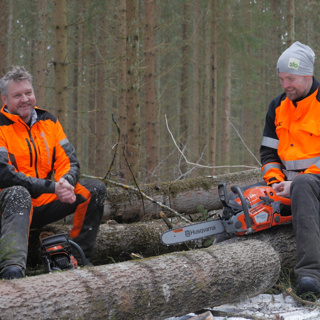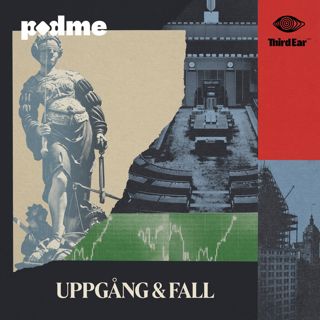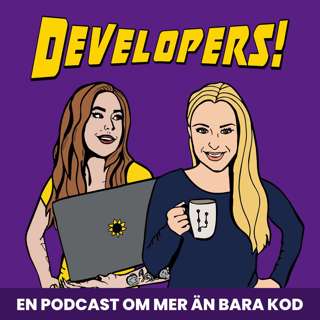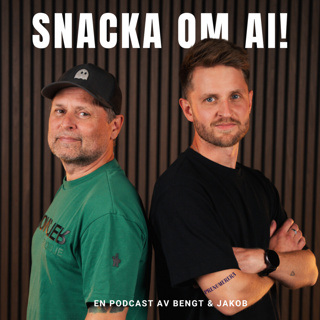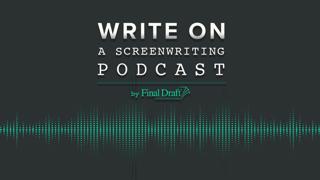
Write On: 'Shadow Force' Director/Co-Writer Joe Carnahan and Co-Writer Leon Chills
"For me, I don't know how you could not make [a script] personal. I think drama allows you to hide how personal it is. I think that's kind of what I like about writing in the genre space. On the outside looking in, it just looks like a big action movie. It doesn't look like a personal story. But there are personal elements like my mom was a working mom as well. And so that's why you have Kyra in the movie who has to come back to her son because she's been working to protect him. That's a very personal thing… but you would never assume that it's a personal story because it's wrapped up in the action," says Leon Chills, co-writer of the new film Shadow Force, about writing action from a very personal point of view. On today's episode, we talk with director/co-writer Joe Carnahan and co-writer Leon Chills about the new action flick Shadow Force that puts a family at the center of the action. With a bounty on their heads, Kyra (Kerry Washington) and Isaac (Omar Sy) must go on the run with their young son (Jahleel Kamara) to avoid their former employer, a unit of shadow ops that has been sent to kill them. Carnahan and Chills talk about the challenges of writing action set pieces and the power of giving the story emotional weight. We also discuss trying to push the boundaries of the action genre to invent set pieces that are fresh and inventive, and writing action scenes on the page that are compact and concise. "As an older writer and doing it as long as I have, I'll tell screenwriters, if I see four or five lines of scene description, I'm telling you, do it in two. Do it in one. Let people spend 40 minutes reading your script. No more. You know what I mean? Get through it with that kind of economy. If you've ever read M. Night Shyamalan's Sixth Sense script – it's an absolute masterclass in how to do that. Just so sparse and beautiful and pitch perfect the way that things are written," says Carnahan. To learn more about action writing and hear more advice, listen to the podcast.
9 Maj 28min

Write On: 2024 Big Break Short Film Winner Brandon Osterman and Seed&Spark
On today's episode, we speak to writer Brandon Osterman, whose short script 'The Naughty List' won last year's Final Draft Big Break Short Screenplay Category. As part of his prize package, he received a consultation with Sav Rodgers, Marketing Manager for Seed&Spark, the film industry's most popular crowdfunding platform. Sav joins the conversation to tell us exactly what crowdfunding is and help all writers understand that funding for their project is possible to achieve. "Who is your audience? At Seed&Spark, we always say that great crowdfunding is audience building first and fundraising second. While there is definitely a fundraising need, finding your audience is invaluable… Something that I always tell prospective crowdfunders is you already have the tools you need to do this. You know how to tell a story. You're here because you're a storyteller. You know how to invite people in. You already know how to talk about yourself persuasively," says Sav Rodgers. Osterman also shares his journey creating his award-winning short script and gives advice to writers who are thinking of creating their own short film project. "I don't think there's been a better time to be making short format content than right now. The demand for it seems to be expanding every time I turn around. I think if that's something that you're interested in, go after it. You know, I think there are more opportunities to distribute that form of content than there have ever been. I think we've got a generation now that's grown up with TikTok and social media and much shorter, digestible content that, whether it's conditioning or just sort of lowering of attention spans, I think more people are more tuned into short form content than they have ever been before. It's a really, really exciting time to be making shorts," says Osterman. To hear more about the short filmmaking process and crowdfunding, listen to the podcast.
7 Maj 42min

Write On: 'Good American Family' Co-Showrunners Katie Robbins and Sarah Sutherland
"One of the things we talked a lot about in the room is that very rarely do people set about their day saying, 'Okay, I'm going to go do some evil.' But for most people, we're all sort of the leads in our own stories and we're all crafting the narrative of who we want the world to see us as. And we do start to believe that. You tell yourself these stories about yourself that you want to be true and you move through the world and you make decisions based on that narrative. And I think that one of the things that as writers, we really try to do is get into the shoes and the heads of the characters that we're writing and really try to break down why they're doing what they're doing and make it feel as real and true as possible. The things that these characters believe – or convince themselves that they believe – have to feel really real and grounded to us," says Katie Robbins, co-showrunner of Good American Family, on writing flawed characters who prefer to live in fantasy, not reality. On today's episode of Write On, we speak to Katie Robbins and Sarah Sutherland, co-showrunners on the explosive limited series, Good American Family. The show tells the story of a midwestern couple who adopts what they believe is little girl with dwarfism. Soon they are in the midst of a battle fought in the tabloids, the courtroom and ultimately their marriage. The show is based on the real-life story of Natalia Grace that made many headlines. Robbins and Sutherland talk about the unusual yet brilliant structure of telling various episodes from different characters' points of view, and how the tone changed when they got to the episodes told from Natalia's perspective. They also talked about the messiness of writing a dysfunctional family while still keeping the story grounded. "We all know family is this wonderful, beautiful thing, but it's so complex. And I think that it's really hard to talk about the complexities of family because we're afraid to undermine the sacredness of it. It's my view that if we are actually more open about what is hard about coexisting as a unit who loves each other, but also what's not perfect, it would make us all better. And I think that that's true both for family but also even for our enemies. We're not writing autobiographies, but I think that we take those very real emotional experiences that we all have and then put them into a story that is cinematic, that is more interesting than our lives, but that is deeply steeped in those real moments of heartache and joy and confusion," says Sutherland. To learn more, listen to the podcast but be aware there are SPOILERS ahead.
7 Maj 43min

Write On: 'NCIS Origins' Showrunners David J. North and Gina Lucita Monreal
"If you can make the twists [in the story] hit your character in an emotional way and set up their emotional arc, then when the case twist intersects with them, if it's hitting them in the deepest way, in the most unexpected way, maybe – then you've done your job. So it's getting that emotional arc to really bounce off of the crime story in the most impactful way," says Gina Lucita Monreal about the most powerful way to fuse together story and character. On today's episode, we talk with David J. North and Gina Lucita Monreal, showrunners and creators of the CBS show NCIS: Origins that brings a fresh perspective to one of television's most beloved franchises as it dives into the early career of a young Leroy Jethro Gibbs (played by Mark Harmon in the original NCIS). Set in the 90s, NCIS: Origins taps into the nostalgia of the era, from great music from bands like Pearl Jam to life with pagers and payphones. North and Monreal discuss getting to know each other a decade ago writing for the original NCIS, and how now they are pushing the boundaries of procedural television by creating more complex, character-driven storylines. "The biggest challenge for us isn't the going back to the 90s. I mean, I think for a lot of procedural writers, that would have been a challenge, that you're losing the DNA and the fingerprints, all that stuff. But for Gina and I, that's not really ever the way we leaned into NCIS or wrote the show. Our episodes were definitely more about the characters, so that's what we looked forward to. And obviously in each episode of Origins, it's very character based. I would say the most difficult part of going back is just sticking to canon, knowing it. Weaving in and out, trying to, when you hit something and saying, 'Okay, well, we know this happened in season three of NCIS,' so trying to honor it while also using it to our advantage – that's difficult. We get beat up a lot on X, and sometimes we have to just pick a path," says North about the challenges of writing beloved characters with a lot of well-known history. To learn more about North and Monreal's writing process and hear their advice for emerging TV writers, listen to the podcast.
8 Apr 37min

Write On: 'Dying for Sex' Co-Creator & Co-Showrunner Kim Rosenstock
On today's episode of Write On, we chat with Kim Rosenstock, co-creator and co-showrunner for the new limited series, Dying For Sex, starring Michelle Williams, Jenny Slate and Sissy Spacek. Based on a true story, Dying for Sex is about a woman diagnosed with metastatic breast cancer who abandons her husband of 15 years to begin a journey of sexual discovery. Rosenstock talks about her background as a playwright, nearly missing out on the opportunity to write for the hit show New Girl, and navigating the complicated tone of Dying For Sex that balances a woman having unconventional, often hilarious sexual escapades with facing her own mortality. "We need humor the most as human beings, so don't be afraid of injecting humor and joy and levity into these sort of subject matters… If you have the impulse to make it funny or to make it feel joyful or hopeful, lean into that and don't be afraid of it. I also think that is what makes it feel real, actually. To me, that makes it feel more honest, not the other way around… I think what's exciting is that audiences are embracing these kinds of stories that can kind of go into darker and lighter places at the same time," says Rosenstock about mixing joy and sadness in Dying For Sex. To hear more, listen to the podcast. Please be advised the interview includes discussion of sexual abuse. Dying for Sex is currently streaming on Hulu.
8 Apr 46min

Write On: 'The Residence' Creator & Showrunner Paul William Davies
"I didn't really set out to make Cordelia (Uzo Aduba) quirky. I just wanted to make her distinctive. I just really thought about who I wanted her to be and how I thought [birdwatching] would be an interesting way for her to approach her job. And the very first thing that came to me was just her use of silence and her ability to just be comfortable in situations that might make other people uncomfortable. And it's a quality that I've seen in certain people that I've always admired and been fascinated with because there's nobody quite like Cordelia, but I've seen glimmers of it," says The Residence creator and showrunner Paul William Davies about creating his lead character Cordelia, a detective who uses her birdwatching skills as framework for solving cases. On today's episode, we talk with Paul William Davies about The Residence, the new Shondaland show streaming on Netflix. Set behind closed doors at the White House, The Residence follows an offbeat detective, Cordelia Cupp (Aduba), as she investigates the murder of a lead member of the White House staff. Davies says the idea came to him watching a hearing on C-SPAN that went into details of the White House's layout. But the show is more than just a game of Clue set in the upstairs-downstairs world of 1600 Pennsylvania Ave. The show goes deep into character and offers plenty of laughs along the way. Davies talks about what he's learned working with television revolutionary Shonda Rhimes, the intense work that goes into structuring a murder mystery, and shares his advice for anyone who may be working on their own TV mystery. "I think it's really important that you think about what the environment is that you're having this murder mystery in, and making the motive something that feels like it's related to the world that you're working in. In most murder mysteries, the murderer is doing it for money or for love or lust. And that's probably in 98% of the ones that you read. And that's fine… But I think really giving a lot of thought to, what is the motive here? How do I keep it organic to this world and these people, as opposed to it just being grafted onto it, which I think sometimes does happen. Make sure that the killer is doing something that feels like it's part of that world for a reason that is related to that world," he says. To hear more, listen to the podcast.
27 Mars 43min

Write On: Peter Katz - Manager & Producer, Story Driven
"Sameness is terrible. Your goal is to cut through it. If you have a unique perspective, you're going to take vampires or anything that everybody thinks they know and do it in a way that's really exciting and gets people really pumped up about it. There are all these incredible worlds to explore, but there just needs to be somebody that can take you there that has a different way of doing it… I want to see creators that offer something specific and unique. Specificity is key to me. I don't want a cover band. I don't want people covering what has been before. I want to see something new. I want to see a badass band with a new singer or new lyrics, a new style of music," says Peter Katz, founder of Story Driven, a literary management and production company. On today's episode, we speak to Peter Katz, a manager and producer championing writers with fresh, unique voices who are forging new ground. We talk about what he looks for in a writing sample, why he loves being a judge in Final Draft's Big Break screenplay competition, and why short stories are having a bright moment in the film industry. "Recently, I've actually seen TV executives starting to think about short stories as a foundation for potential shows. It's a really effective way to communicate an idea quickly, in a really conceptual way, but also, it's not like a pitch. It's very tonal. You have character perspective and you have the style that the author brings to it. So I think it has a really unique marriage between pitching the concept, but also immersing you in a world in a very short period of time. That's why I think it's been effective in selling to a market, because you could share a short story with somebody and it doesn't demand a lot of time. If it's developed properly, you're able to learn about the potential of this project and then quickly share with somebody else on your team. And overnight, a lot of people can sign on to a project because it doesn't take as long as other mediums," says Katz. To hear more about Katz's perspective on the industry and what he looks for in a writer's voice, listen to the podcast.
19 Mars 35min

Write On: 'Long Bright River' Showrunner Nikki Toscano
"With an adaptation, you can never give back your first read. So, what are you taking away? What fills your soul? Why do you want to tell this story? And then that becomes sort of the North Star. And I'm tethered more by that North Star than by the actual moves that are happening in the book," says Long Bright River showrunner, Nikki Toscano, about adapting Liz Moore's best-selling novel for television. Long Bright River is an emotional suspense thriller that follows Mickey (Amanda Seyfried), a police officer in a Philadelphia neighborhood hit hard by the opioid epidemic. As a string of murders unfolds, Mickey must find her missing sister who's also battling addiction before it's too late – but long buried family secrets stand in the way. On the surface, the show is a highly engaging murder-mystery, but beneath the whodunnit is a love story between two sisters. We chat with Toscano about delving into the sisterly dynamic that is both compassionate and toxic at the same time. Toscano shares tools for building an enticing mystery that includes giving your characters secrets to help drive the story. "I think that in the beginning of anything, you have to determine what your character wants and then put a bunch of people or things in that character's way. So that's how secrets are born, right? And that's how you have your audience leaning in. Is the secret going to come out? Who's going to tell the secret? You and I could be having a conversation and I say, 'Don't tell anybody!' And then the next scene is you being in a situation where do you tell, do you not tell? It's about setting up those kinds of things. I mean, whenever building any kind of show, whether it's an adaptation or not, determine what your character wants and then stick a bunch of people between them and that goal that either complement or compromise your character's journey," says Toscano. To hear more, listen to the podcast. Long Bright River streams on Peacock March 13.
7 Mars 35min










